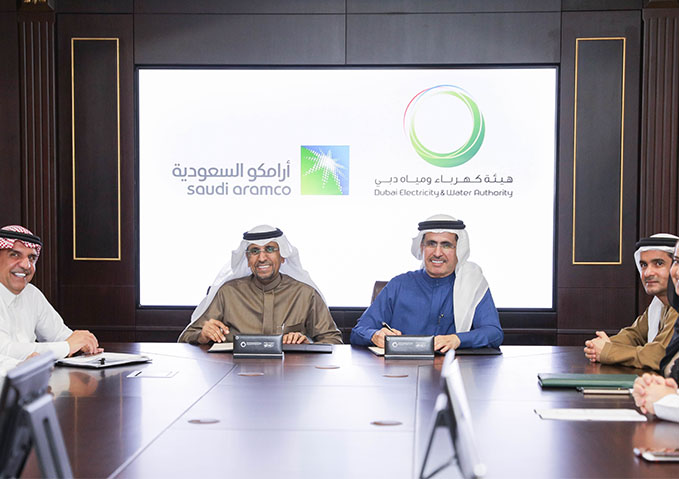A high-level delegation from Saudi Arabia's energy giant, Saudi Aramco, recently visited the headquarters of the Dubai Electricity and Water Authority (DEWA) in what is seen as a move to foster closer collaboration in the region's ever-evolving power and water sector.
The delegation, led by Khalid Al Salouli, Director and Head of the Energy Industrial City at Aramco, was welcomed by Saeed Mohammed Al Tayer, Managing Director and CEO of DEWA. The meeting, described by both parties as productive, focused on exploring potential avenues for cooperation in key development projects related to power and water infrastructure.
DEWA, a global leader in sustainable utilities, boasts a well-established reputation for its cutting-edge practices and efficient service delivery. Al Tayer, during the discussions, highlighted DEWA's ongoing commitment to clean energy, showcasing the ambitious Dubai Clean Energy Strategy 2050, which aims to achieve a 75% reliance on clean energy sources by mid-century. The centerpiece of this strategy is the world-renowned Mohammed bin Rashid Al Maktoum Solar Park, the largest single-site solar park globally.
The Saudi Aramco delegation expressed keen interest in learning from DEWA's expertise, particularly in areas like generation, transmission, and distribution of power and water. Aramco is currently spearheading the development of a massive Energy Industrial City, a 50 square kilometer project envisioned as a hub for energy-intensive industries. Officials believe that DEWA's proven track record in managing a complex and efficient utilities network could provide valuable insights for the project's development.
The discussions also delved into benchmarking practices and key performance indicators employed by DEWA. Benchmarking allows organizations to compare their internal processes against industry leaders, identifying areas for improvement and fostering innovation. Aramco representatives believe that adopting some of DEWA's best practices could significantly enhance the efficiency and sustainability of their own operations.
The meeting concluded with a shared commitment to continued dialogue and exploration of collaborative opportunities. Industry analysts view this potential partnership as a significant development for the region's energy sector. A successful collaboration between these two powerhouses could pave the way for advancements in clean energy integration, infrastructure development, and knowledge sharing, ultimately benefiting the entire region.

